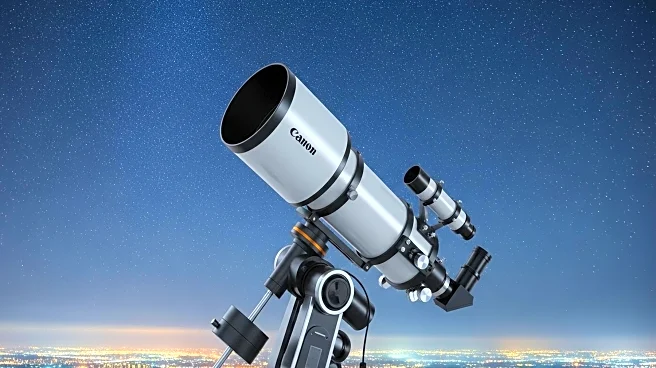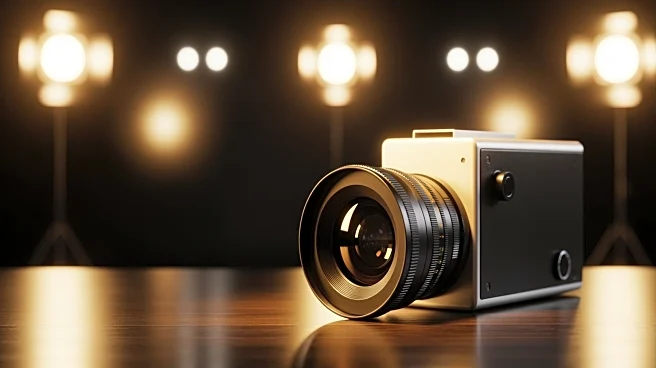What's Happening?
Urban light pollution poses a significant challenge for stargazers, making it difficult to observe faint celestial objects. Smart telescopes, such as the Unistellar Odyssey Pro, offer a solution by utilizing advanced image stacking and real-time processing to filter out artificial light interference. These telescopes can reveal details in nebulas, star clusters, and galaxies that are otherwise obscured by city lights. The Bortle scale, which measures light pollution, indicates that urban areas often fall between seven and nine, where many night sky objects are invisible to the naked eye. Despite these challenges, smart telescopes enable users to capture stunning images of celestial phenomena from city centers, enhancing the stargazing experience.
Why It's Important?
The ability to observe celestial objects from urban areas has significant implications for amateur astronomers and educational institutions. Smart telescopes democratize access to astronomy, allowing enthusiasts to explore the night sky without needing to travel to remote locations. This technology also supports educational programs by providing students with hands-on experience in observing and analyzing astronomical data. Furthermore, the increased accessibility to stargazing can foster a greater public interest in science and technology, potentially inspiring future generations to pursue careers in these fields.
What's Next?
As smart telescope technology continues to advance, we can expect further improvements in image processing capabilities, making it easier to observe even fainter objects. Manufacturers may also develop more portable and affordable models, broadening their appeal to a wider audience. Additionally, collaborations between tech companies and educational institutions could lead to the integration of smart telescopes into school curriculums, enhancing STEM education. The growing popularity of smart telescopes may also encourage urban planners to consider light pollution reduction strategies, improving the visibility of the night sky for all residents.
Beyond the Headlines
The use of smart telescopes raises ethical considerations regarding the impact of technology on traditional stargazing practices. While these devices offer enhanced viewing capabilities, they may also diminish the appreciation for natural, unaided observation of the night sky. Additionally, the reliance on technology for stargazing could lead to a disconnect from the natural world, as users focus more on digital screens than the sky itself. Balancing technological advancements with the preservation of traditional stargazing experiences will be crucial in maintaining the cultural significance of astronomy.









